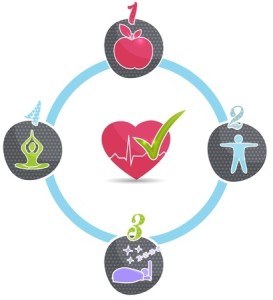PTSD and the Impact on Health
June 14, 2014
Lecture at the “Resolve Emotions to Resolve Disease Conference”
By Steve B. Reed, LPC, LMSW, LMFT | Email
 In 1990, I took some training with psychologist Stephanie Simonton1. Her husband Carl, was a physician who treated cancer patients. Together they worked with the physical and psychological aspects of cancer in their practice. Stephanie noted something striking during the training. She had an interesting observation about patients who develop cancer. She said that many of their cancer patients had experienced a significant traumatic event two or three years prior to the onset of their cancer. Although this was anecdotal, it suggested that physical maladies may occasionally have a psychological element that contributes to the disease.
In 1990, I took some training with psychologist Stephanie Simonton1. Her husband Carl, was a physician who treated cancer patients. Together they worked with the physical and psychological aspects of cancer in their practice. Stephanie noted something striking during the training. She had an interesting observation about patients who develop cancer. She said that many of their cancer patients had experienced a significant traumatic event two or three years prior to the onset of their cancer. Although this was anecdotal, it suggested that physical maladies may occasionally have a psychological element that contributes to the disease.
In 2001, a research study in Japan was able to quantify the direct impact of PTSD (posttraumatic stress disorder) on physical health2. In that study, the researchers looked at two groups of men who were identical in almost every way statistically. The one exception was that one group of men had never experienced a traumatic event. The other group had suffered a singular traumatic event ten years prior to the study that had highly impacted them. What was discovered was very important. The group of men who had experienced a traumatic event, showed suppressed immune system functioning a full decade after their trauma. The group that was not traumatized had immune systems that were normal.
In 2013, research was published in the Journal of Biological Psychiatry that showed the impact of PTSD on heart disease3. The study was conducted with U.S. military veterans. These were veterans who received treatment at V.A. facilities. Of the 663 V.A. outpatients, 230 were found to have PTSD. Both groups were compared to determine if there was a difference in the incidents of heart disease. In brief, the study found that 10% of the non-PTSD group suffered from myocardial ischemia. However, 17% of the veterans who had PTSD were diagnosed with heart disease. The editor of Biological Psychiatry, Dr. John Krystal, suggested that “increased risk for cardiac ischemia may turn out to be an important new concern for individuals suffering from long-standing untreated PTSD”.
Since 2000, I have been working on the development and refinement of the REMAP process as a treatment tool to provide relief and healing for those who have suffered from a variety of anxiety related disorders including PTSD. On Saturday, June 21, 2014, I will be presenting a lecture at the Academy of Comprehensive Integrative Medicine’s conference titled “Resolve Emotions to Resolve Disease”. My presentation is titled: Quick REMAP to Resolve Underlying Trauma. I have a number of videos that address the topic of PTSD and the use of Quick REMAP that could be useful viewing in addition to attending my lecture. The conference is on June 20th and 21st. It will be held at the Westin DFW International Airport Hotel. The website link to the conference information is: http://acimconnect.com/Events/TabId/72/ArtMID/3505/ArticleID/10/Resolve-Emotions-to-Resolve-Disease-Conference.aspx
1. Simonton, O. C., Matthews-Simonton, S., & Creighton, J. L. (1978). Getting well again. New York, NY: Bantam Books.
1990 Seminar with Stephanie Simonton
2. Kwamura, N., Yoshiharu, K., & Nozomu, A. (2001). Suppression of cellular immunity in men with a past history of post traumatic stress disorder. American Journal of Psychiatry, 158, 484-486
3. Turner, J. H., Neylan, T. C., Schiller, N. B., Li, Y., & Cohen, B. E. (2013). Objective evidence of myocardial ischemia in patients with posttraumatic stress disorders. Biological Psychiatry, 74(11), doi: 10.1016/j.bopsych.2013.07.012

